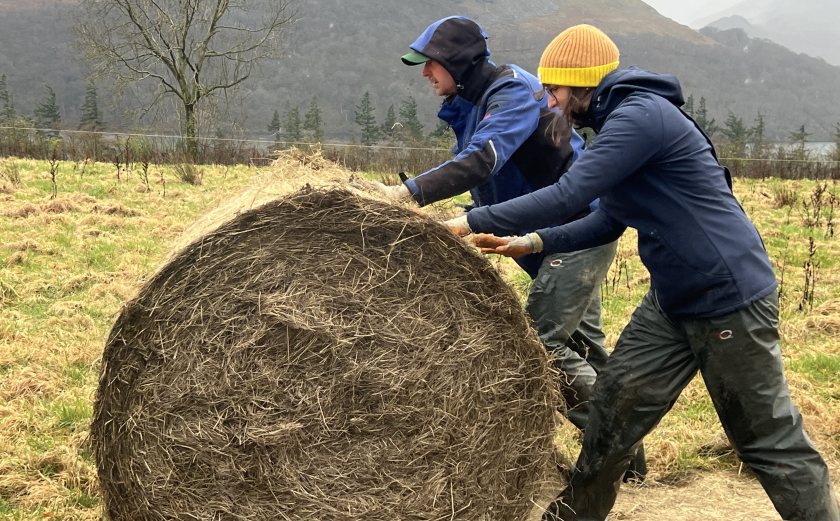
Bale grazing can halve housing costs for beef suckler herds this winter, according to the results of a new farmer-led project.
Bale grazing can produce a net financial benefit of £1.58 per head per day, as well as providing numerous non-financial benefits.
These were the conclusions of a new AHDB-funded project, which looked in detail at seven beef farms across the UK that are currently bale grazing.
The report is part of a wider Pasture for Life and Innovative Farmers project, which is seeking to quantify the impacts of bale grazing on forage quality, quantity and soil health post-bale grazing.
Farmers taking part were asked for details of their bale grazing system, any key cost savings and wider non-financial benefits compared with housing.
The cost-benefit analysis on one of the farms showed a net financial benefit when bale grazing of £1.58 per head per day, which is approximately half the housing cost.
Report author Emily Grant, of beef and sheep consultancy Forrit, said that setting out bales as soon as they were made significantly reduced handling and storage costs."
“In general, the cost savings come from making hay rather than silage, not buying and bedding down with straw, reduced fuel and labour costs as farmers shift from using tractors to muck out to UTVs to go and move electric fences.
“Of course there are also a few potential downsides to consider, including the fact that pasture is not available for grazing once shut up with bales, the loss of phosphate and potash input from imported straw and that fixed costs of machinery and buildings are difficult to drop.”
Trial co-ordinator and Aberdeenshire farmer Nikki Yoxall, who keeps a herd of native cattle, said the benefits of bale grazing had barely been explored in the UK.
She said: "We are delighted that not only is it working well for our animals, it is also providing a business case for this practice to be adopted by the wider farming sector.
“Outwintering is the best option for our cattle, but it can create all kinds of problems for the environment and that can put a big strain on farmers.
"But so far bale grazing is having a wide range of positive effects across several farm and soil types, as well as saving us money and time.”
